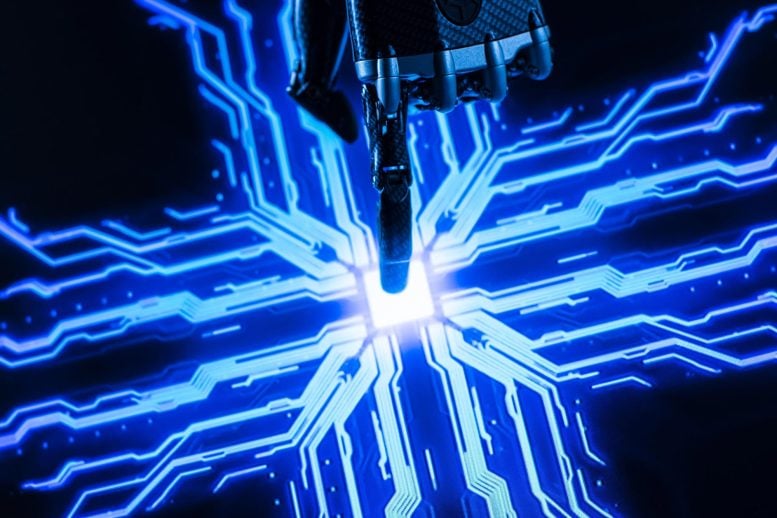
The energy consumption of the device will be so small that it can harvest its energy itself, directly from its surroundings. The project has received funding from the Villum Experiment program.
Artificial intelligence (AI) has seen explosive growth in recent years, but despite major progress, the power required to run AI algorithms continues to increase.
In stark contrast to this, the human brain only requires around 20W to perform more than 10 quadrillions (10,000,000,000,000,000) operations. This is 12 orders of magnitude better than modern supercomputer technologies.
“That’s why we’re conducting intensive research into developing new hardware that mimics the structure of the human brain, with neurons, synapses, and neural networks, known as brain-inspired computing (BICs). But even though we’ve managed to drastically reduce the energy consumption of AI algorithms, there’s still a long way to go before BICs are as efficient as the human brain when it comes to size and energy efficiency,” says Hooman Farkhani, an assistant professor at the Department of Electrical and Computer Engineering at